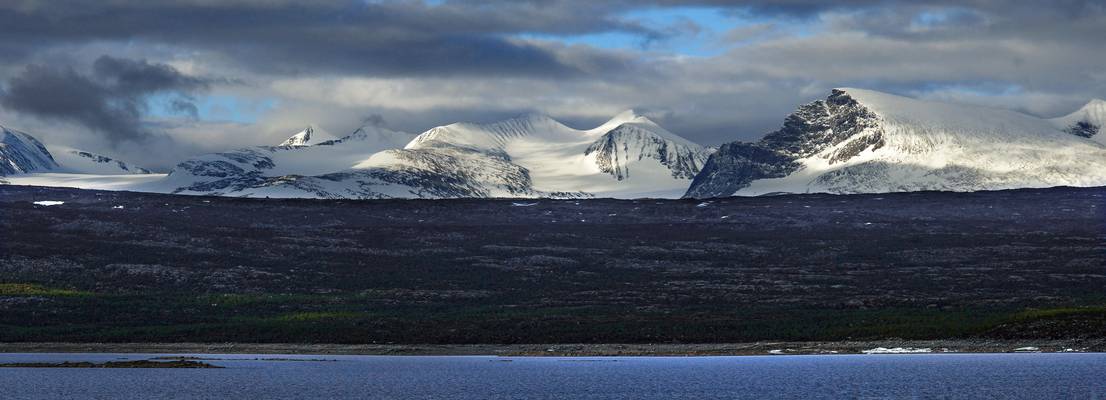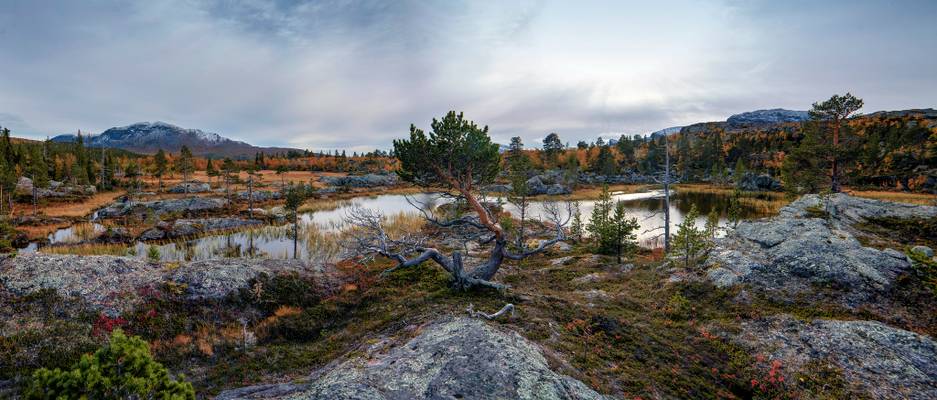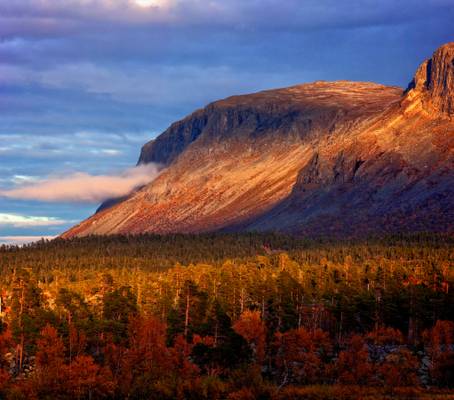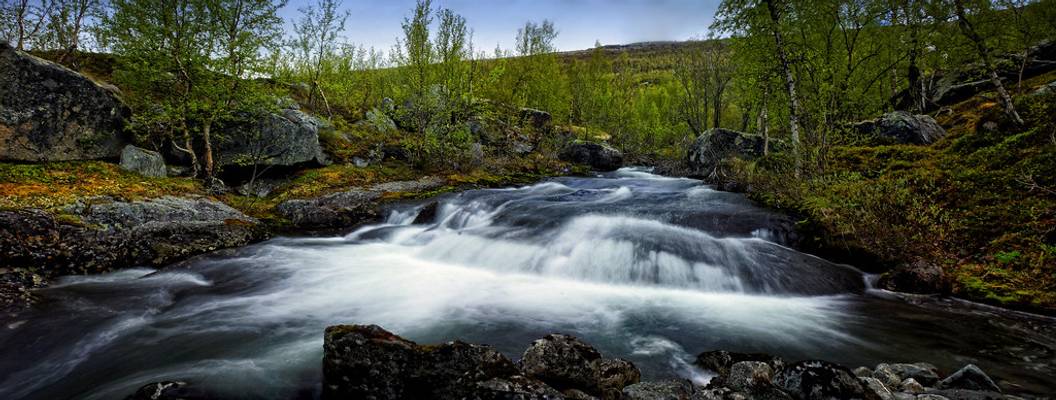
Ritsemvägen
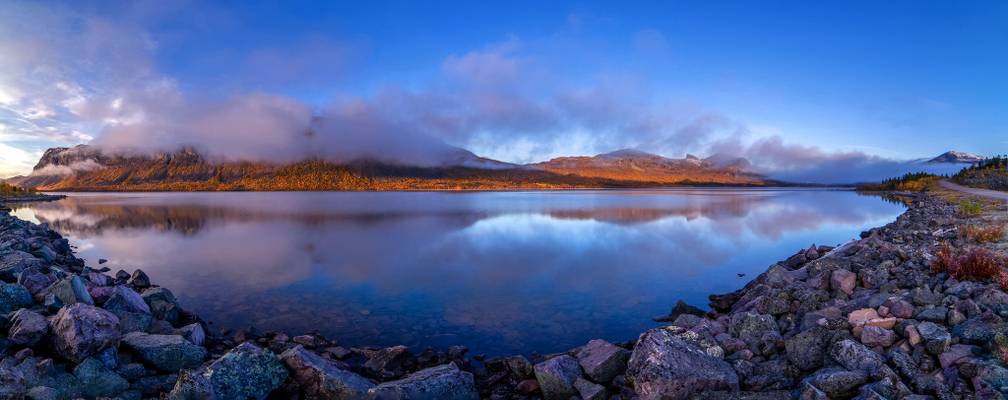
by Kari Siren
3 shots stitched with lightroom
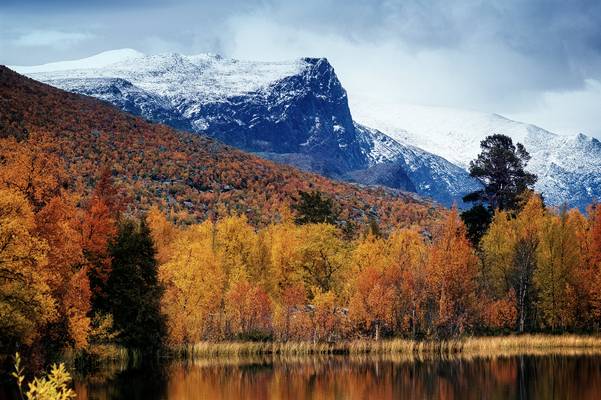
by Kari Siren
Stora Sjöfallet National park Sweden

by Kari Siren
Tree shots stitched with lightroom.
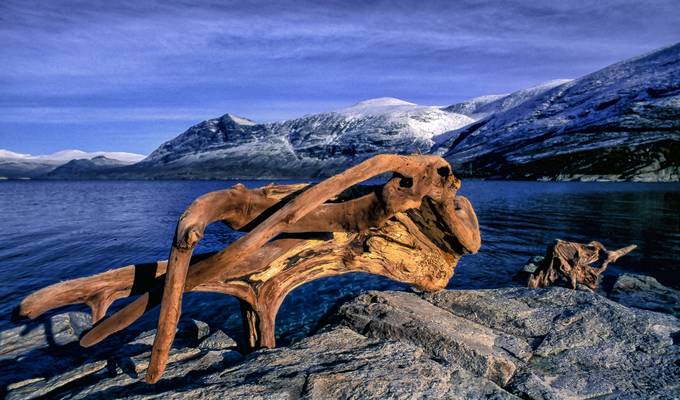
by Kari Siren
Scanned with Minolta DiMAGE scan Elite 5400 dual 2, slide film
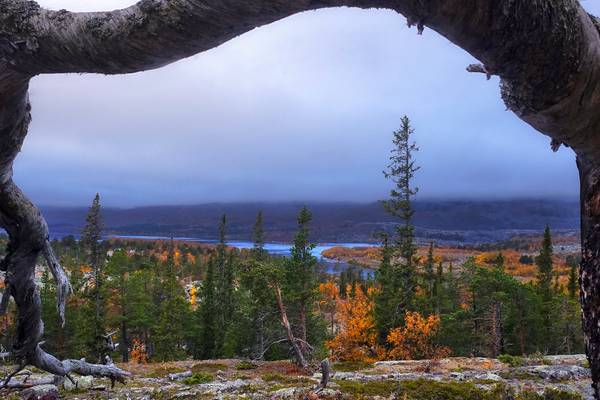
by Kari Siren
The total area is about 9,400 square kilometres (3,600 sq mi), making it the world's largest unmodified nature area to be still cultured by natives—the natives in this case being the reindeer herding Sami people also known as Lapps (though this term is considered derogatory). Only parts of the area is actually used for pasture by them. With such a large space, the geography of the area varies greatly; it is dominated by mountains, rivers and lakes. Each nature reserve and national park has its distinctive features. The amount of snow in winter and rain in summer is considerable.
95% of the area is protected as national parks or nature reserves. It consists of the national parks Muddus, Sarek, Padjelanta and Stora Sjöfallet, and the nature reserves Sjaunja and Stubba. The remaining 5% are located in the areas of Sulitelma, Tjuoltadalen, and Rapadalen (part of which is in the Sarek park). The village of Porjus is a natural point of entry to the Laponian area and has recently opened an information center.
The Laponia area also contains three major hydropower stations with belonging basins and a big expansion of 100 wind power stations inside the world heritage area is planned.
The highest mountain of the area is Sarektjåhkkå, at 2,089 metres (6,854 ft).
Thanks to all Phoide contributors to Ritsemvägen!
Most notably Kari Siren.
